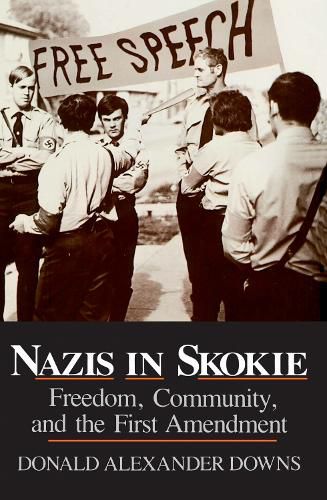Readings Newsletter
Become a Readings Member to make your shopping experience even easier.
Sign in or sign up for free!
You’re not far away from qualifying for FREE standard shipping within Australia
You’ve qualified for FREE standard shipping within Australia
The cart is loading…






In 1977, a Chicago-based Nazi group announced its plans to demonstrate in Skokie, Illinois, the home of hundreds of Holocaust survivors. The shocked survivor community rose in protest and the issue went to court, with the ACLU defending the Nazis’ right to free speech. The court ruled in the Nazis’ favor. According to the content neutrality doctrine governing First Amendment jurisprudence, the Nazis’ insults and villifications were neutral –not the issue, as far as the law was concerned. But to Downs, they are at issue. In Nazis in Skokie he challenges the doctrine of content neutrality and presents an argument for the minimal abridgment of free speech when that speech in intentionally harmful. Draawing on his interviews with participants in the conflict, Downs combines detailed social history with informed legal interpretation in a provocative examination of an abiding tension between individual freedom and community integrity, and between procedural and substantive justice.
$9.00 standard shipping within Australia
FREE standard shipping within Australia for orders over $100.00
Express & International shipping calculated at checkout
In 1977, a Chicago-based Nazi group announced its plans to demonstrate in Skokie, Illinois, the home of hundreds of Holocaust survivors. The shocked survivor community rose in protest and the issue went to court, with the ACLU defending the Nazis’ right to free speech. The court ruled in the Nazis’ favor. According to the content neutrality doctrine governing First Amendment jurisprudence, the Nazis’ insults and villifications were neutral –not the issue, as far as the law was concerned. But to Downs, they are at issue. In Nazis in Skokie he challenges the doctrine of content neutrality and presents an argument for the minimal abridgment of free speech when that speech in intentionally harmful. Draawing on his interviews with participants in the conflict, Downs combines detailed social history with informed legal interpretation in a provocative examination of an abiding tension between individual freedom and community integrity, and between procedural and substantive justice.